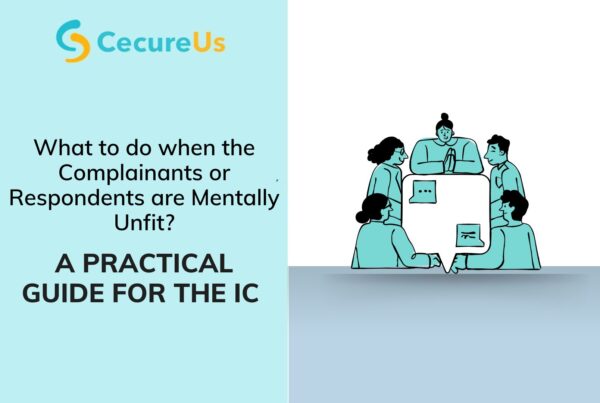
Inflicting a slow loss of cognitive function and memory, Alzheimer’s disease is a strong adversary. It affects not only the individual who is afflicted but also their relatives and careers significantly because it is one of the most prevalent neurodegenerative diseases. Alzheimer’s disease adversely affects mental health in addition to its well-known physical symptoms. We will examine the complex connection between mental health and Alzheimer’s disease in this blog, highlighting the difficulties that patients and their loved ones encounter.
In India, the prevalence of dementia among persons 60 and older is estimated to be 7.4%. Over 60-year-old Indians with dementia number about 8.8 million. Dementia is more common in women than in men, and in rural areas than in metropolitan ones. The issues brought on by dementia and Alzheimer’s have received some attention from the Indian government. One such program with the goal of enhancing dementia care and assistance is the National Dementia Strategy.
Understanding Alzheimer’s Disease
Memory loss, behavioural abnormalities, and progressive cognitive deterioration are the hallmarks of Alzheimer’s disease. It is a major contributor to dementia and primarily affects elderly persons. Researchers believe that a mix of genetic, environmental, and behavioural factors contribute to the condition, even if the exact reason is yet unknown. Everybody affected by the disease may find it emotionally upsetting as the disease progresses since people may find it difficult to complete simple chores, forget about loved ones, and change their personalities.
The Impact on Mental Health
- Depression and Anxiety:
Depression and anxiety are typical symptoms for people with Alzheimer’s. It can be emotionally painful for someone to realize that their cognitive abilities are deteriorating. Additionally, the inability to carry out daily duties and the loss of independence can result in feelings of hopelessness and dissatisfaction.
- Caregiver Stress:
Family members or professional careers frequently shoulder the responsibility of caring for a person with Alzheimer’s. Their mental health may also suffer as a result of this duty. Careers may experience chronic stress, anxiety, and depression due to the obligations of caregiving and the burden of seeing their loved one deteriorate.
- Behavioural and Psychological Symptoms:
Aggression, agitation, and hallucinations are examples of problematic behaviours that can be a sign of Alzheimer’s. These signs and symptoms can be quite upsetting for both the Alzheimer’s patient and their careers. It can be emotionally taxing and might require specialized care to control these behaviours.
- Social Isolation:
As people with Alzheimer’s have trouble communicating and remembering things, this can make them withdraw from social situations. Feelings of loneliness and depression may be made worse by this seclusion.
How work-related stress can impact those dealing with Alzheimer’s?
- Impact on Individuals with Alzheimer’s:
- Cognitive Decline: Alzheimer’s disease causes cognitive impairment, making it difficult for individuals to manage tasks and responsibilities at work. Stress from work can exacerbate cognitive decline, leading to increased forgetfulness and confusion.
- Emotional Toll: People with Alzheimer’s may find it difficult to emotionally manage their work-related stress. Their general well-being may suffer as their anxiety and dissatisfaction may intensify.
- Discrimination and Stigma : At employment, some people with Alzheimer’s may experience stigma or prejudice, which adds to their stress. It’s possible that coworkers or managers don’t fully get the difficulties they’re dealing with.
- Reduced Productivity: Reduced cognitive function can result in decreased performance and productivity at work, which may cause career failures.
- Impact on Caregivers:
- Balancing Work and Caregiving: Alzheimer’s patients’ careers frequently balance two responsibilities at once: looking after their loved ones and keeping their own jobs. It can be incredibly stressful to juggle these obligations, which might result in burnout.
- Reduced Work Hours: To provide proper care, some careers may need to work fewer hours or abandon their employment, which can cause financial stress.
- Emotional Strain: For careers, being forced to watch a loved one with Alzheimer’s deteriorate emotionally can be extremely taxing. Even when they are at work, they could be preoccupied with thoughts of their loved one’s welfare.
- Lack of Support: Many careers do not have access to flexible work schedules or enough support from their employers, which can increase their stress levels.
Ways to Address Work-Related Stress in the Context of Alzheimer’s:
- Open Communication: Individuals with Alzheimer’s and their caregivers should have open discussions with their employers about their situation. This can help employers understand the challenges and potentially offer accommodations or support.
- Flexible Work Arrangements: Employers may consider providing flexible work hours, telecommuting options, or part-time work to accommodate caregivers.
- Employee Assistance Programs (EAPs): EAPs often offer counseling and support for employees dealing with personal and family issues, including caregiving stress.
- Time Management: Caregivers should prioritize tasks and manage their time effectively to balance work and caregiving responsibilities.
- Respite Care: Utilizing respite care services or seeking help from family members or hired caregivers can provide caregivers with much-needed breaks.
- Stress Management: Both individuals with Alzheimer’s and caregivers should practice stress management techniques, such as mindfulness, meditation, or therapy, to cope with the emotional toll.
- Legal and Financial Planning: Planning for the long-term care of the individual with Alzheimer’s, including legal and financial arrangements, can help alleviate some stressors.
- Support Groups: Joining support groups for Alzheimer’s caregivers can provide emotional support and valuable advice on managing stress.
Alzheimer’s disease is a debilitating ailment that has more than just physical symptoms. It has a significant effect on mental health, having an effect not just on persons who have been diagnosed but also on their loved ones and careers. The most effective management techniques for the mental health issues brought on by Alzheimer’s disease include seeking professional assistance, participating in support groups, and placing a high priority on self-care. The best way to provide greater assistance and enhance the general wellbeing of persons affected by this condition is through increased understanding and research into the relationship between Alzheimer’s disease and mental health.
For more blogs and articles, visit our official website or connect with us at wellness@cecureus.com /1800 121 9497.




